Discover a wide range of academic journal LaTeX templates for articles and papers which automatically format your manuscripts in the style required for submission to that journal.
Recent
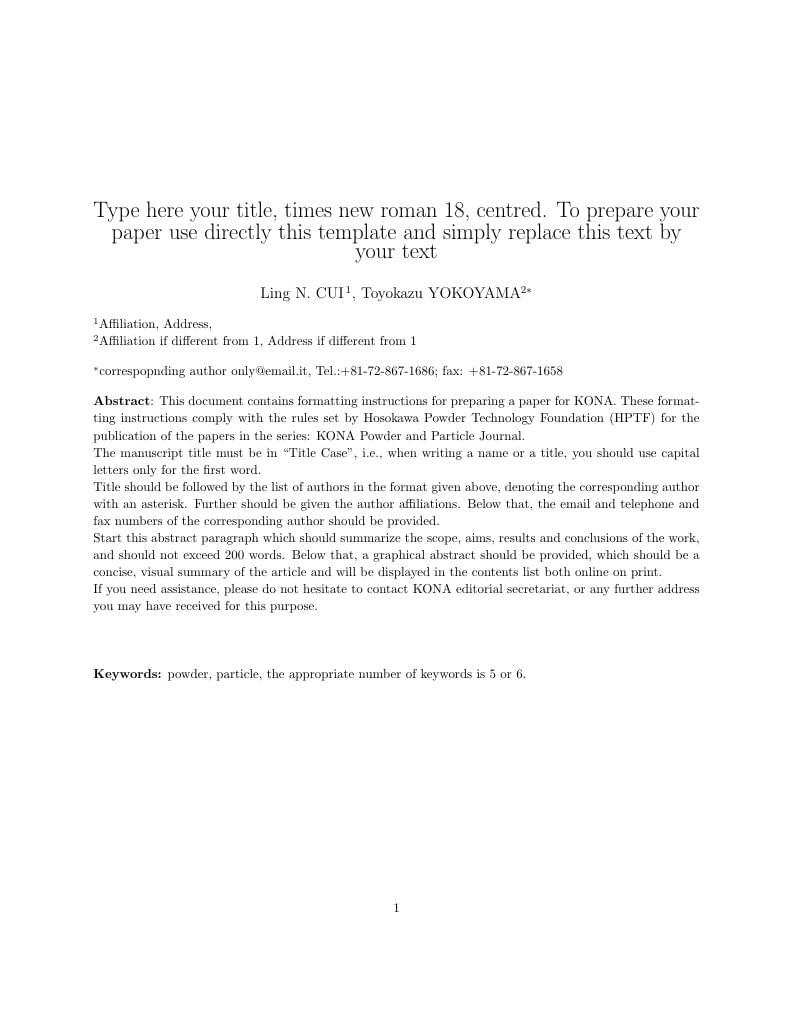
Combined LaTeX Template and Instructions (updated January 2019) for KONA Powder and Particle Journal
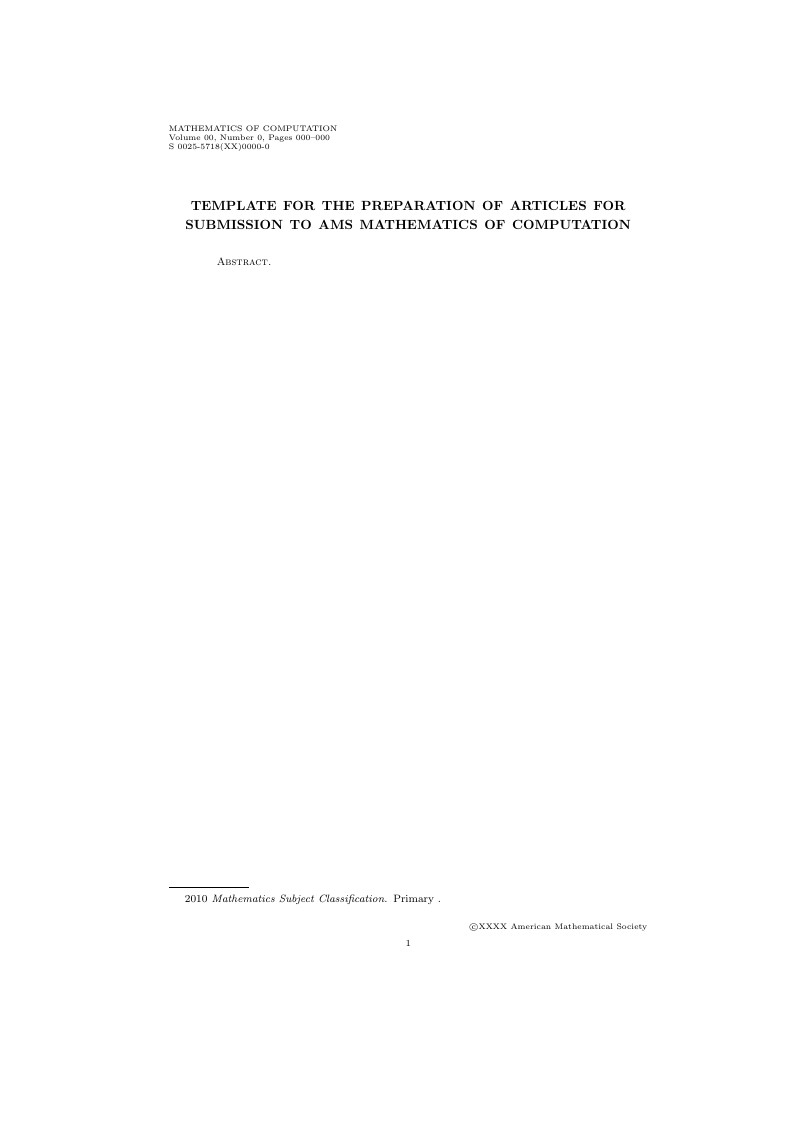
This is the template for the preparation of manuscripts for submission to Mathematics of Computation; it is pre-loaded with the necessary files, and can be opened for editing in Overleaf simply by clicking the button above. Once your manuscript is ready, the 'Submit to Mathematics of Computation' button in the top bar of the Overleaf editor provides a quick route to the official Mathematics of Computation submission portal with the files you need for submission.
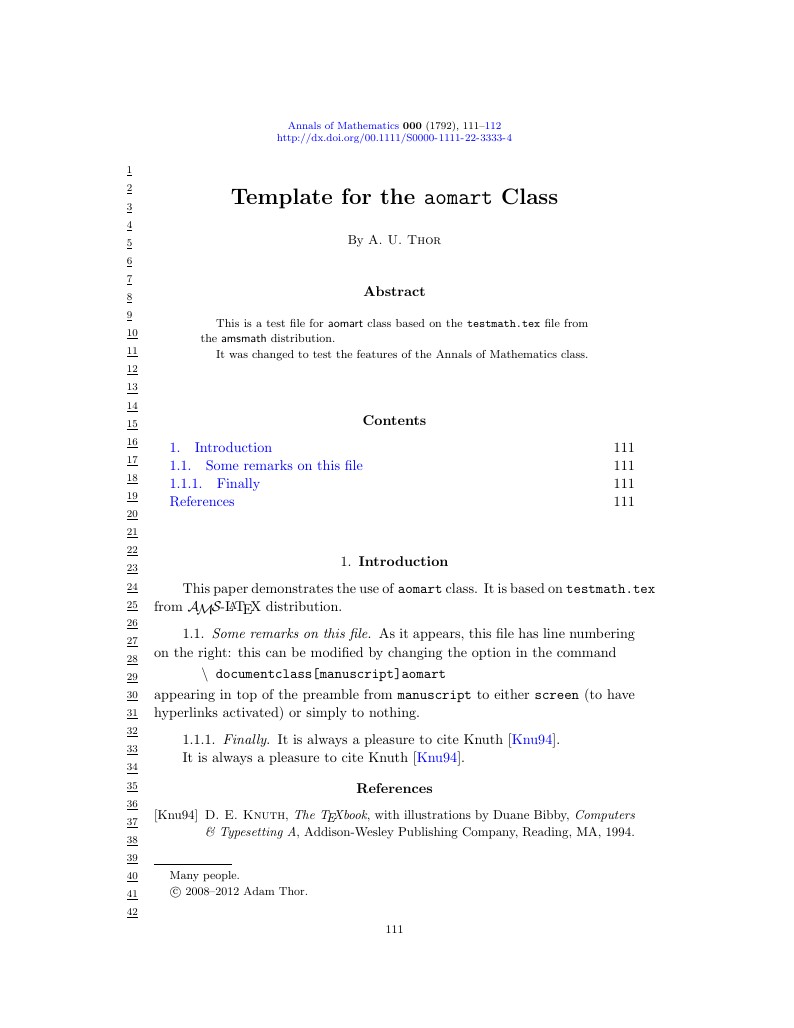
This is a template for preparing manuscripts for submission to the Annals of Mathematics. The original repository, with relevant documentation, can be found here.
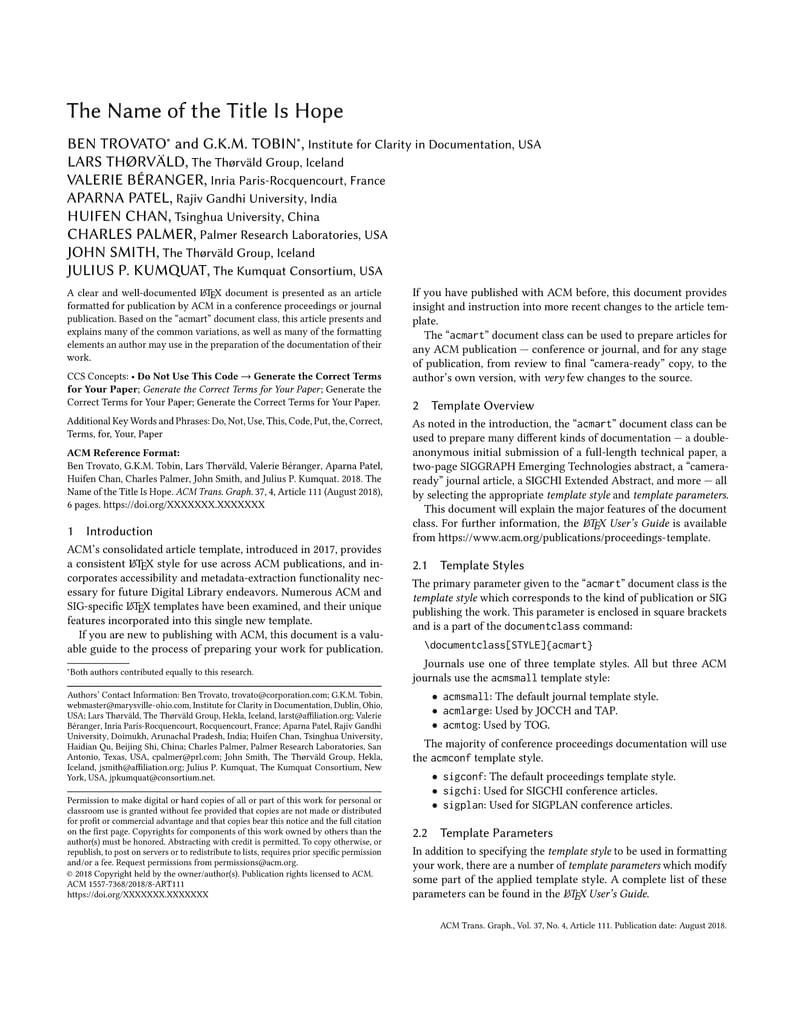
This is a sample file for ACM large trim, 2-column journals, specifically showing an example of a paper for ACM Transactions on Graphics, using acmart.cls v2.16 (2025/08/28). It is provided by the ACM as a template for submissions, and pre-loaded in Overleaf (formerly writeLaTeX) for ease of editing online. Please see the ACM Submission Guidelines page for more details on manuscript preparation. This large double column format is used for submissions to ACM Transactions on Graphics (TOG). Once your article is complete, you can use 'Submit to ACM' button at the top of the Overleaf editor bar to quickly download your paper files and go straight to the appropriate ACM submission site. Important information regarding submission versions for review: After finalizing the formatting of your paper you must use the option “manuscript” with \documentclass[manuscript]{acmart} command. This will generate the output in single column review format which is required. Accepted manuscripts will be transformed during production to produce properly formatted output accord to the publication specifications. Authors will be provided the opportunity to review and approve the formatted output before the article is published to the ACM Digital Library.
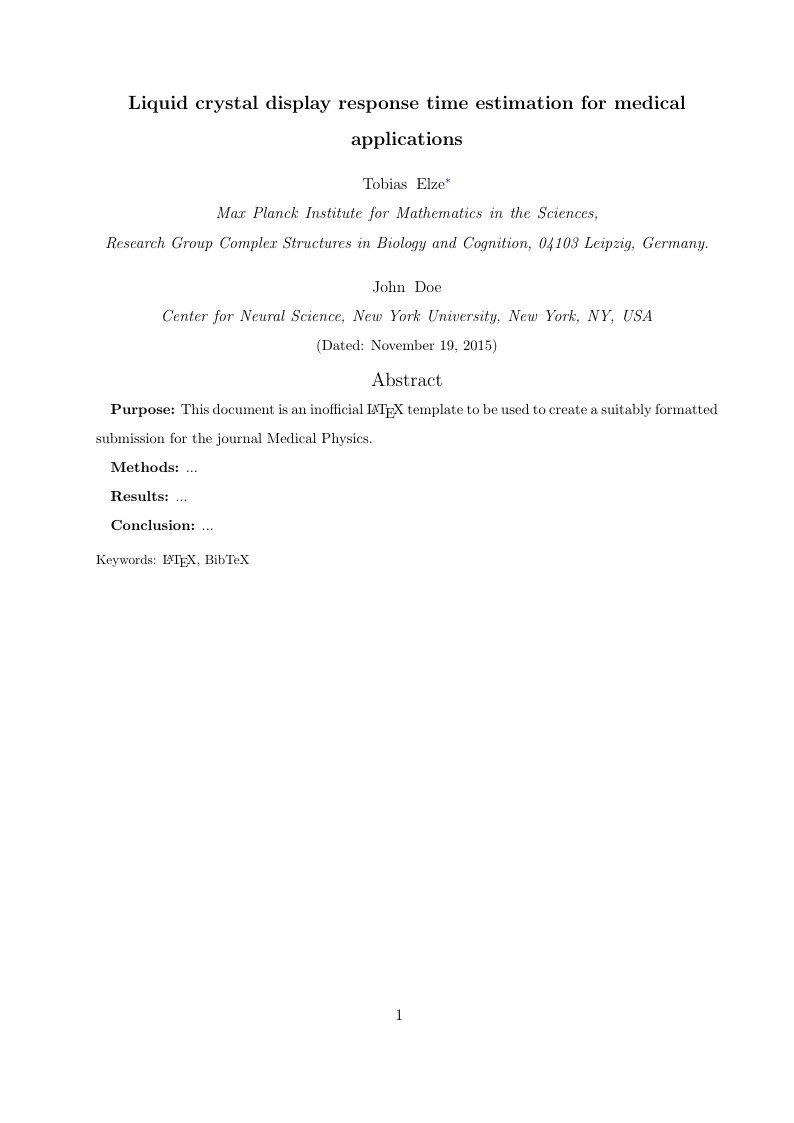
Journal template for Medical Physics based on RevTeX. A few non-obvious settings had to be done in the manuscript file. This template was generated from the manuscript file (Elze and Tanner, 2009) This template was downloaded from http://www.tobias-elze.de/latex/ on 19 November 2015.
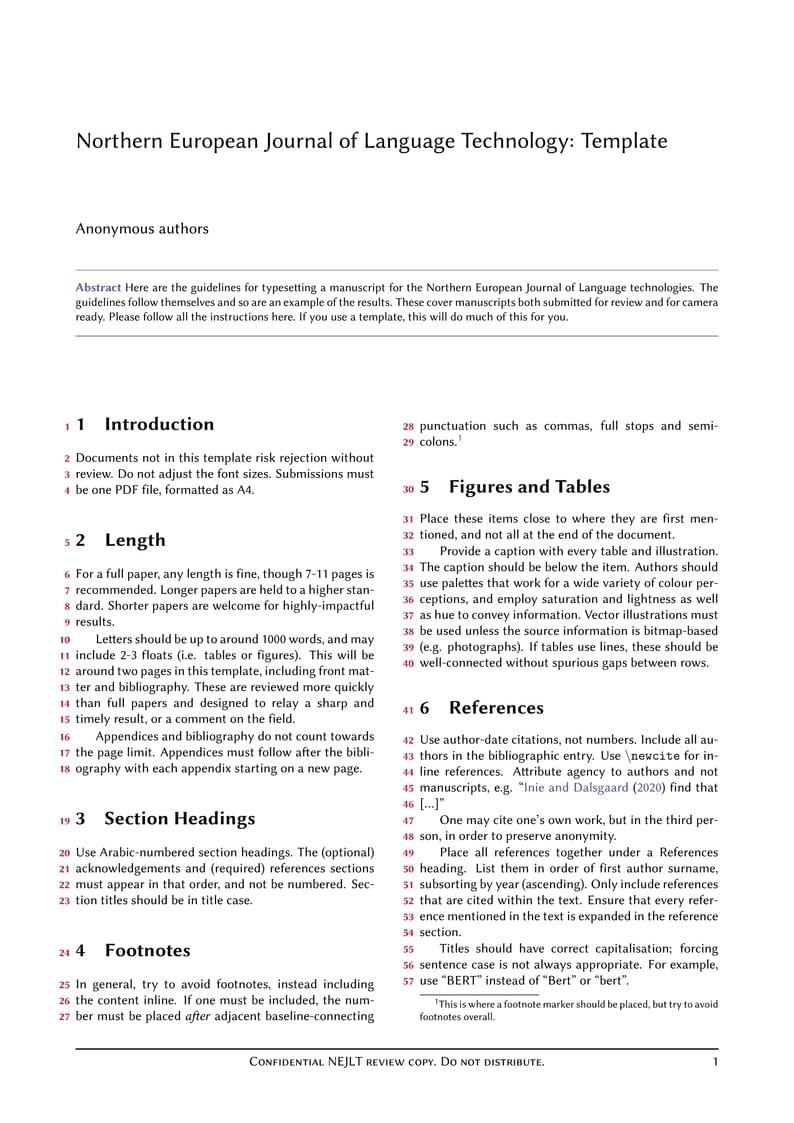
Paper template for the Northern European Journal of Language Technology
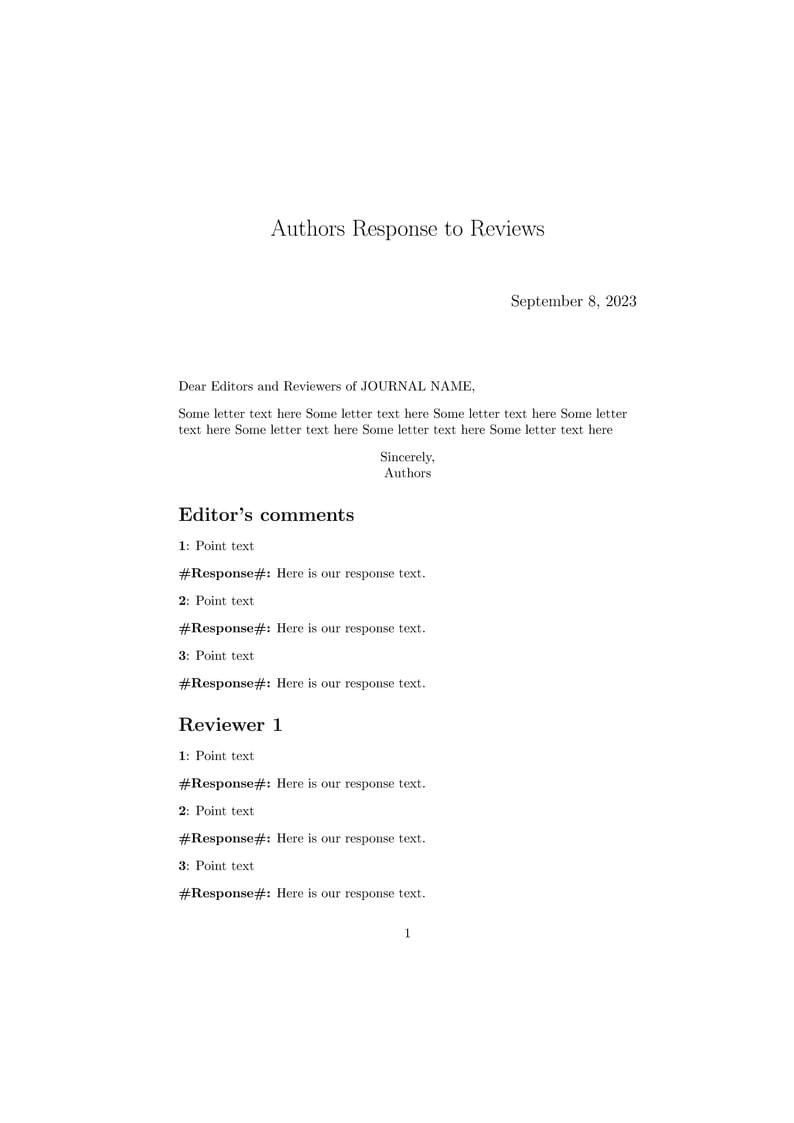
Use this template to write an author(s) response to review notes and submit as response letter with your revised manuscript to the journal.
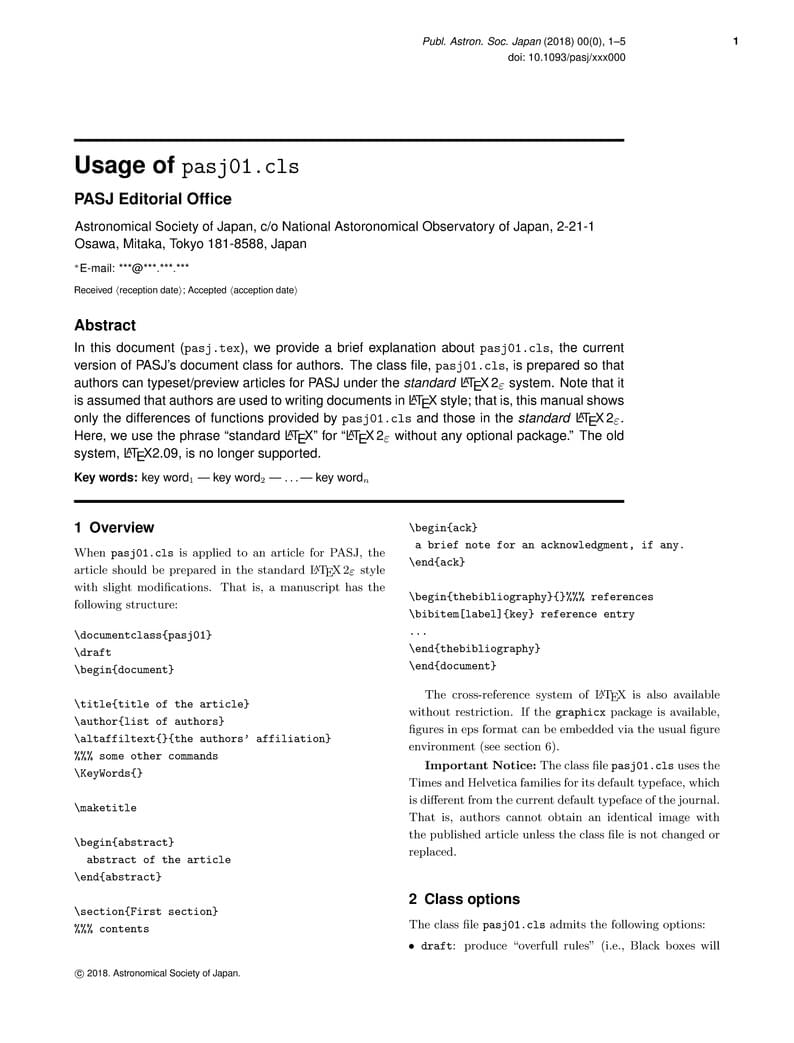
The Journal of Logic and Computation aims to promote the growth of logic and computing, including, among others, the following areas of interest: Logical Systems, such as classical and non-classical logic, constructive logic, categorical logic, modal logic, type theory, feasible maths. The bulk of the content is technical scientific papers, although letters, reviews, and discussions, as well as relevant conference reviews, are included. For more information about the journal, see http://pasj.oxfordjournals
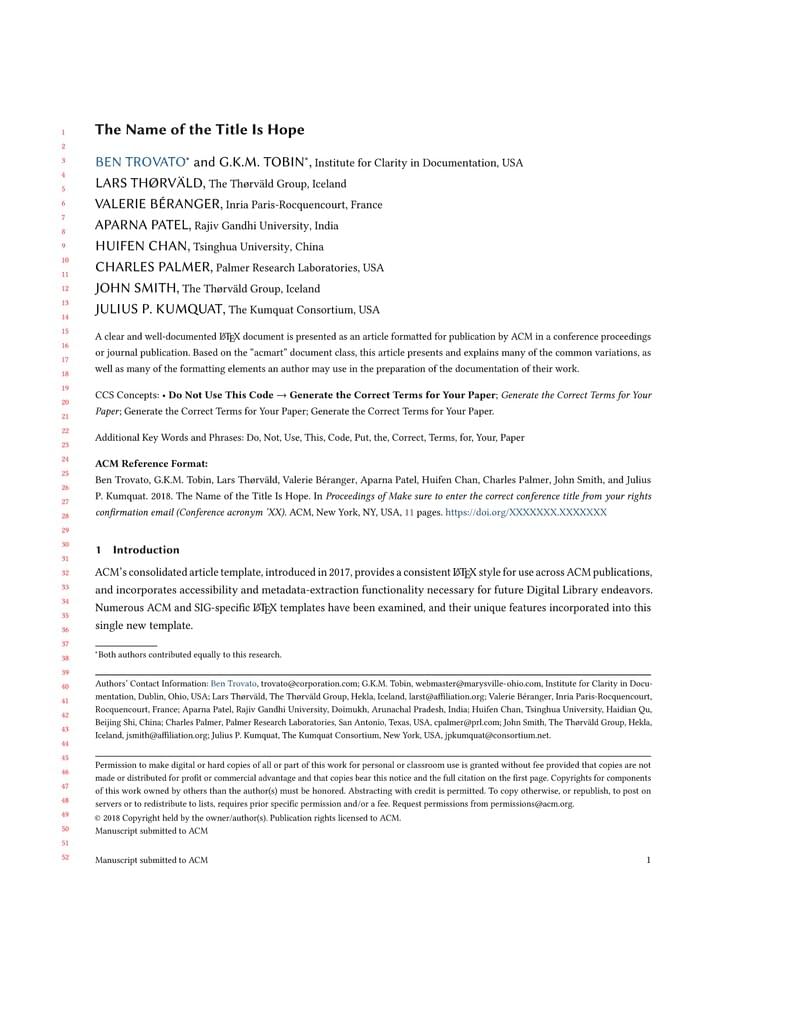
ACM has transitioned to a new authoring template. This new TeX template (acmart v2.16) consolidates the previous eight individual ACM journal and proceedings templates. The templates are updated to the latest software versions, developed to enable accessibility features, and they use a new font set. The new LaTeX package incorporates updated versions of the following ACM templates: ACM Journals: ACM Small, ACM Large, ACM and TOG (also for SIGGRAPH authors publishing in TOG) ACM proceedings templates: ACM Standard and SIGPLAN All journals use acmsmall with the following exceptions: acmlarge - Large single column format, used for IMWUT, JOCCH, PACMPL, POMACS, TAP, PACMHCI acmtog - Large double column format, used for TOG Note: Most proceedings authors will use the "sigconf" proceedings template. If you are unsure which template variant to use, please request clarification from your event or publication contact. Important information regarding submission versions for review: After finalizing the formatting of your paper you must use the option “manuscript” with \documentclass[manuscript]{acmart} command. This will generate the output in single column review format which is required. Accepted manuscripts will be transformed during production to produce properly formatted output accord to the publication specifications. Authors will be provided the opportunity to review and approve the formatted output before the article is published to the ACM Digital Library. Before using the 2017 ACM consolidated article template, we strongly suggest that you read the TeX User Guide. Authors who plan to use their own packages should read the longer Implementation Guide. More detailed Instructions for Authors are found at http://www.acm.org/publications/authors/information-for-authors. It is important to provide the proper indexing information from the ACM Computing Classification System (CCS). Accurate semantic tagging provides a reader with quick content reference; facilitates the DL search for related literature; enables several DL topic functions such as aggregated SIG and journal coverage areas; and helps ACM promote your work in other online resources. Once your article is complete, you can use the “Submit to ACM” button at the top of the Overleaf editor bar to quickly download your paper and go straight to the appropriate ACM submission site. For conference proceedings submissions, please refer to the submission guidelines in the relevant call-for-papers or on the event website. For support on using these templates, or on LaTeX in general, please contact the Overleaf team -- we're happy to help.
\begin
Discover why over 25 million people worldwide trust Overleaf with their work.